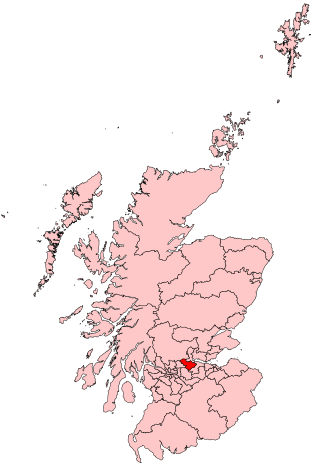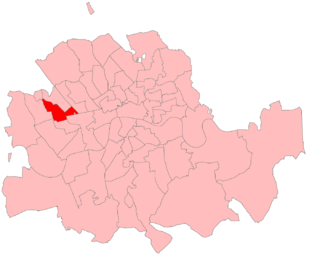The National Executive Committee (NEC) is the governing body of the UK Labour Party, setting the overall strategic direction of the party and policy development. Its composition has changed over the years, and includes representatives of affiliated trade unions, the Parliamentary Labour Party, constituency Labour parties (CLP), and socialist societies, as well as ex officio members such as the party Leader and Deputy Leader and several of their appointees.
The Co-operative Party is a centre-left political party in the United Kingdom, supporting co-operative values and principles. The party currently has an electoral pact with the Labour Party. Established in 1917, the Co-operative Party was founded by co-operative societies to campaign politically for the fairer treatment of co-operative enterprise and to elect co-operators to Parliament. The party's roots lie in the Parliamentary Committee of the Co-operative Union established in 1881.

Dame Louise Joyce Ellman is a British politician who served as Member of Parliament (MP) for Liverpool Riverside from 1997 to 2019. She is a member of the Labour Party.

Roger Duncan Godsiff is a British former politician who served as the Labour Member of Parliament (MP) from 1992 to 2019, for the seats of Birmingham Small Heath, Birmingham Sparkbrook and Small Heath, and Birmingham Hall Green.
Ann BlackOBE is a British political activist who serves as a member of the National Executive Committee (NEC) of the Labour Party. She served from 2000 to 2018 and was re-elected in November 2020. She was chair of the NEC from 2009 to 2010, and has also served as chair of the NEC's disputes panel.

Falkirk is a county constituency of the House of Commons of the Parliament of the United Kingdom. It was created for the 2005 general election, replacing Falkirk West and part of Falkirk East.

Sharon Hodgson is a British politician who has served as Member of Parliament (MP) for Washington and Gateshead South since 2024, and previously for Washington and Sunderland West and Gateshead East and Washington West from 2005. A member of the Labour Party, she has chaired the Finance Committee since 2023.

Paddington South was a Parliamentary constituency in London which returned one Member of Parliament. It was a compact urban area, but predominantly wealthy, and was most famously represented by Lord Randolph Churchill during the latter part of his career.
The Centre-Left Grassroots Alliance (CLGA) is a centre-left group of elected members on the Labour Party's National Executive Committee, founded in 1998. They represent members from a broad spectrum of the Labour membership, ranging from the centre-left to those on the left-wing.
Michael Stuart Thomas is a former British politician, identified with the Labour Party until 1981 and thereafter with the Social Democratic Party (SDP). He became well known for his role in both the establishment of the SDP and then in the SDP's subsequent demise. The SDP's leader, Roy Jenkins, referred to Thomas as the "pint-sized Pavarotti", on the basis of his stocky build and beard together with his ebullient manner.
The Labour Representation Committee (LRC) is a British socialist pressure group within the Labour Party and wider labour movement. It is often seen as representing the most left-wing members of the Labour Party.
There are five types of elections in the United Kingdom: elections to the House of Commons of the United Kingdom, elections to devolved parliaments and assemblies, local elections, mayoral elections, and Police and Crime Commissioner elections. Within each of those categories, there may also be by-elections. Elections are held on Election Day, which is conventionally a Thursday, and under the provisions of the Dissolution and Calling of Parliament Act 2022 the timing of general elections can be held at the discretion of the prime minister during any five-year period. All other types of elections are held after fixed periods, though early elections to the devolved assemblies and parliaments can occur in certain situations. The five electoral systems used are: the single member plurality system (first-past-the-post), the multi-member plurality, the single transferable vote, the additional member system, and the supplementary vote.

Pamela Ann Catherine Nash is a British Labour Party politician who has served as the Member of Parliament (MP) for Motherwell, Wishaw and Carluke since 2024. She previously served as Chief Executive of Scotland in Union, a campaign group launched in March 2015 to help keep Scotland within the United Kingdom. Between 2010 and 2015 she was the Labour MP for Airdrie and Shotts.

Alexander Cunningham is a British politician who served as Member of Parliament (MP) for Stockton North from 2010 to 2024. A member of the Labour Party, he was Shadow Minister for Courts and Sentencing from 2020 to 2024.

In 2013, Eric Joyce, member of the House of Commons for Falkirk, resigned from the Labour Party and announced he would not seek reelection. The process of nominating a replacement candidate for the 2015 general election led to a dispute between the party and its major financial backer Unite the Union, causing the suspension of two local party members, the resignation of Tom Watson MP as Labour's 2015 election strategist, as well as the forwarding of an internal report into the situation to Police Scotland.
The 2016 Labour Party leadership election was called when a challenge to Jeremy Corbyn as Leader of the Labour Party arose following criticism of his approach to the Remain campaign in the referendum on membership of the European Union and questions about his leadership of the party.

A by-election for the House of Commons constituency of Manchester Gorton was scheduled to take place on 4 May 2017, following the death of the sitting Labour Member of Parliament (MP), Sir Gerald Kaufman. It was cancelled on 20 April following the announcement of the 2017 general election. At the general election in June, most of the candidates who were due to stand in the by-election contested the seat, and the Labour candidate, Afzal Khan, retained the seat for his party with a large majority.
Deselection in the UK Labour Party is the process by which support for an MP is withdrawn by their local party meaning that the MP is unable to stand in a forthcoming general election with the support of the party.
The 2021 Airdrie and Shotts by-election was held in the UK parliament constituency of Airdrie and Shotts following the resignation of the sitting member (MP), Neil Gray, to run for the corresponding seat in the 2021 Scottish Parliament election. This was necessitated by Scottish National Party (SNP) rules banning its members from sitting as an MSP and an MP at the same time. It took place on 13 May 2021, a week after the Scottish Parliament elections, to reduce COVID-19 transmission risk.
A by-election for the United Kingdom parliamentary constituency of Wakefield was held on 23 June 2022. It was triggered by the resignation, on 3 May 2022, of Member of Parliament (MP) Imran Ahmad Khan, who was elected as a Conservative at the 2019 general election and resigned following a criminal conviction for child sexual assault. Ahmad Khan was subsequently jailed for 18 months.








